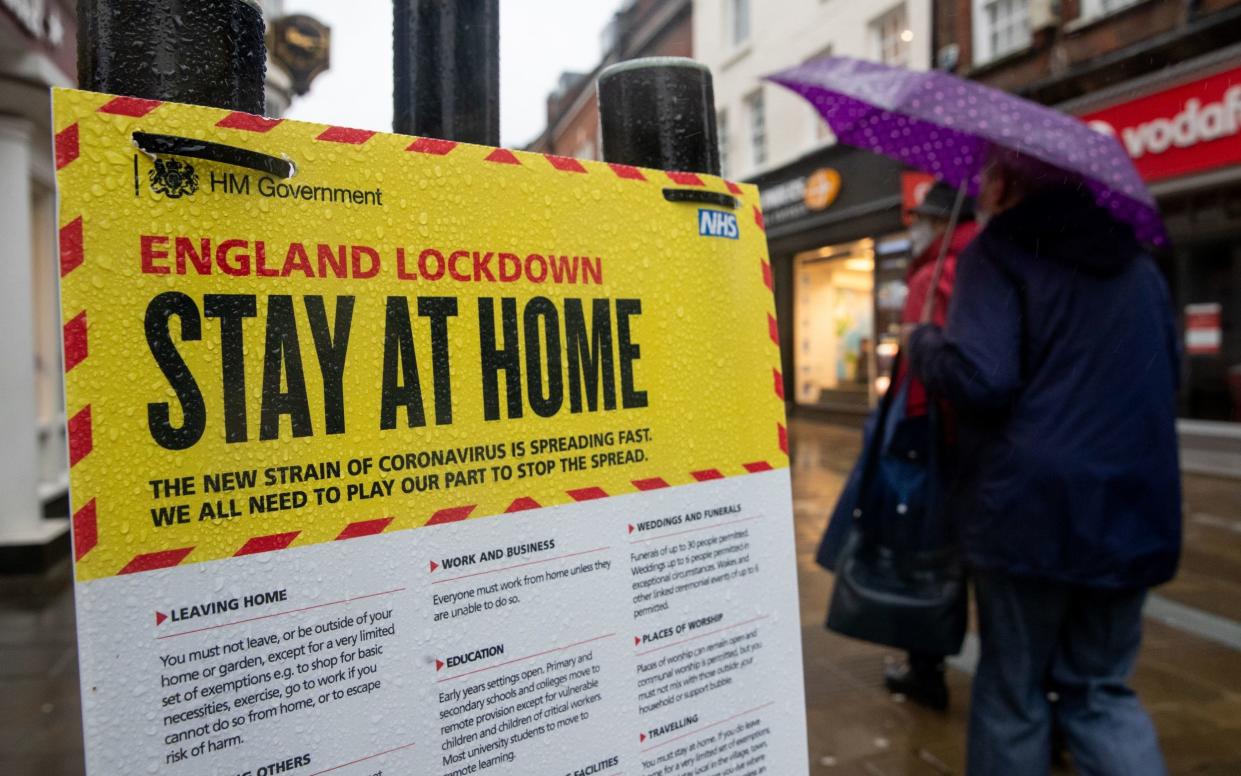Britain risks losing power to control future lockdowns to WHO

Britain risks “signing away” its powers over pandemic policy to “unelected” World Health Organisation (WHO) officials, MPs have warned.
It is feared that a new “pandemic treaty”, which is currently being drawn up by the UN agency, could bounce the UK into locking down society faster during a future global health crisis.
Critics warn that member states could be pressured into following the agency’s instructions when responding to pandemics under the treaty, including by introducing vaccine passports, border closures and quarantine measures.
Recommended
Six questions Covid-19 Inquiry is failing to answer
Concerns have also been raised that Britain could be forced to spend five per cent of its health budget on preparing for another virus outbreak.
A group of Conservative MPs and peers has written to Alicia Kearns, chair of the foreign affairs select committee, to warn of their “growing concerns” about the new WHO pandemic treaty and the lack of scrutiny it faces.
The group, who are all members of the all-party parliamentary group on pandemic response and recovery, caution against the UK signing up to a treaty with “potentially the most far reaching changes” to the way public health policy will be conducted.
They also warn against decisions being made by “unelected” officials and say there must be a greater level of “parliamentary scrutiny and oversight” over the treaty.
The letter has been signed by the former Brexit minister and chief negotiator Lord Frost as well as Tory MPs Philip Davies, Philip Hollobone and Sir Christopher Chope.
They warn that if the new treaty and its amendments are adopted, they risk “undermining UK sovereignty, allowing unaccountable individuals and supranational bodies tacit jurisdiction over national public health measures”.
The rule changes have been proposed as part of plans to update the WHO’s International Health Regulations (IHRs) in light of the coronavirus pandemic and establish a new Pandemic Preparedness Treaty.
The treaty was first proposed by world leaders including Boris Johnson in 2021 during the pandemic and was originally designed to improve alert systems, data sharing and the production of vaccines to “foster an all of government and all of society approach”.
But among 300 proposed amendments to the IHRs are changes to make the WHO’s advice “binding” and introduce a new requirement for countries to recognise it as the global authority on public health measures.
The last available draft plan would require member countries to “recognise WHO as the guidance and coordinating authority of international public health response… and undertake to follow WHO’s recommendations in their international public health response”.
Major concerns
Lord Frost told The Telegraph that he has two major concerns about the treaty. “Firstly, the fact that the Government is not really being that open about what it is doing in the negotiations,” he said.
“The other concern is about the practical impact this treaty could have on our domestic laws. A UN convention doesn’t itself have direct legal force in the UK.
“But as we discovered with the Rwanda plan, the doctrine of many government lawyers seems to be that international commitments are in practice just as legally binding as our own laws. So, getting the details of this treaty right is really quite important.
“So that is really my worry. Ministers will claim that these new treaties involve no loss of sovereignty. But in practice, if another crisis comes, there will be lots of pressure to act within the WHO framework, and government lawyers will tell us we must.
“We could find that in practice we have signed away the ability to pursue other options and to act as Sweden did in 2020.”
The amendments to the treaty are due to be finalised at a WHO assembly meeting in May, but Lord Frost and the other MPs are urging ministers to postpone this to allow for greater scrutiny, as they hit out at the “secrecy” of the negotiations so far.
The foreign affairs select committee is planning to hold an evidence hearing about the WHO’s pandemic treaty in the coming months, as part of a broader piece of work looking at the role of multinational organisations.
Labour sources said they would want to see the wording of any draft treaty before taking a position.
A Health Department spokesperson said: “The UK continues to be actively involved in the processes of negotiating an accord on pandemic prevention, preparedness, and response as well as targeted amendments to the International Health Regulations 2005 (IHR). We see both processes as an opportunity to address the weaknesses seen in global health security during the COVID-19 pandemic.
“Ministers have been clear that that we will not sign up to any agreement which fails to respect our national sovereignty and would not agree to any measure that would cede sovereignty to the World Health Organisation (WHO) in making domestic decisions concerning national public health, including vaccine programmes and lockdowns.”

